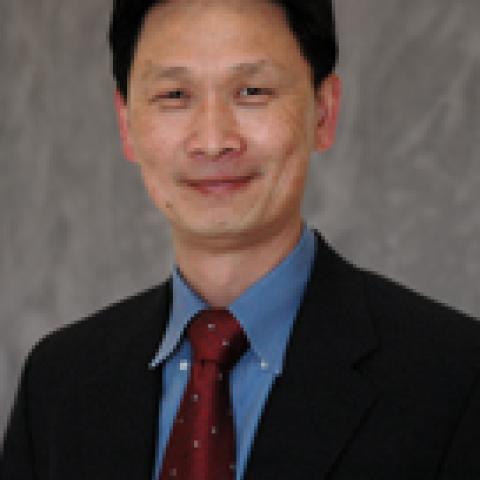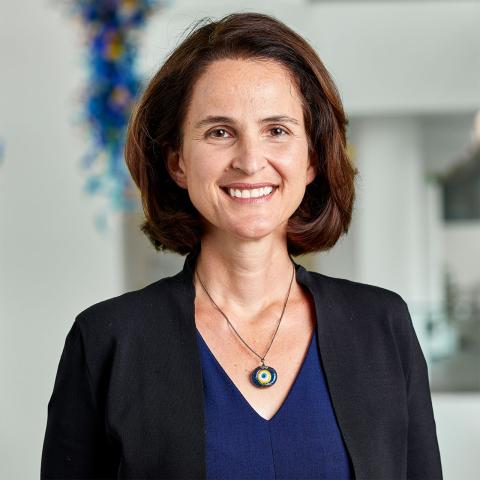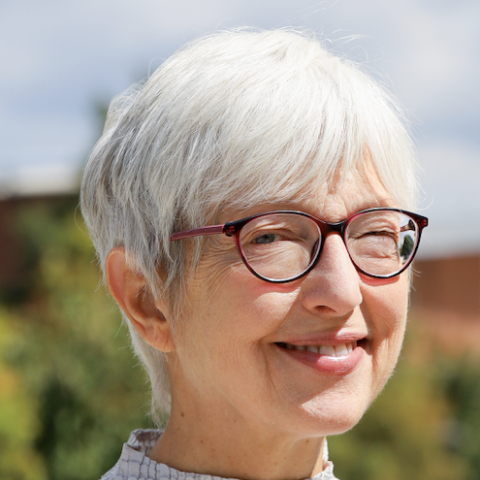Costas Tsouris





The Tong Lab tackles challenges in the interdisciplinary areas of bioresource engineering and sustainable chemistry. We develop innovative technologies for producing chemicals, materials, energy, and fuels from renewable resources.
Current research interests include:
Disciplines:
Materials and Nanotechnology
Energy and Sustainability

Beril Toktay is Professor of Operations Management, Brady Family Chairholder. Her primary research areas are sustainable operations and supply chain management. Professor Toktay's research has been funded by several National Science Foundation grants and has received distinctions such as the 2010 Brady Family Award for Faculty Research Excellence and the MSOM Society's 2015 Management Science Best Paper in Operations Management Award. Her research articles have appeared in Management Science, M&SOM, Operations Research, Production and Operations Management and Industrial Ecology. She became a Distinguished Fellow of the MSOM Society in 2017.
Professor Toktay has taught Supply Chain Management courses at the PhD, MBA, and Executive Education levels as well as Operations Management and Operations Research courses at the PhD level. She has developed cases and pedagogical material for MBA and Executive Education audiences and co-curricular educational initiatives at the undergraduate level. She currently teaches Business Strategies for Sustainability in MBA and Executive Education programs. She's a recipient of the 2016 Ernest Scheller Jr. Award for Service Excellence and the Georgia Tech 2015 Women of Distinction Award.
Professor Toktay served as Associate Editor for M&SOM (2007-2018), POM (2009-2013), and Management Science (2011-2017), and Area Editor (Environment, Energy and Sustainability) for Operations Research (2012-2018). She co-edited the M&SOM Special Issue on the Environment. She was the President of the MSOM Society and VP of Finance of the POM Society. At Georgia Tech, she serves as the Scheller College of Business ADVANCE Professor, a role that is focused on supporting the advancement of women and underrepresented minorities in academia. She is the founding Faculty Director of the Ray C. Anderson Center for Sustainable Business and the co-architect and Executive Co-Director of Georgia Tech's Serve.Learn.Sustain Quality Enhancement Plan.


Anjali Thomas is an Associate Professor in the Sam Nunn School of International Affairs and Director of the Nunn School Program in Global Development. Her research focuses on the political economy of development, and employs quantitative analyses of data derived from India and other developing country contexts. Her specific substantive interests include the politics of service provision, democratic institutions and the link between climate change and local level politics. Prior to joining the faculty at Georgia Tech, Anjali was a faculty member in the Department of Political Science at the University of British Columbia in Vancouver. She obtained her Ph.D. from New York University in 2010.

Valerie Thomas is the Anderson-Interface Chair of Natural Systems and Professor in the H. Milton School of Industrial and Systems Engineering, with a joint appointment in the School of Public Policy.
Dr. Thomas's research interests are energy and materials efficiency, sustainability, industrial ecology, technology assessment, international security, and science and technology policy. Current research projects include low carbon transportation fuels, carbon capture, building construction, and electricity system development. Dr. Thomas is a Fellow of the American Association for the Advancement of Science, and of the American Physical Society. She has been an American Physical Society Congressional Science Fellow, a Member of the U.S. EPA Science Advisory Board, and a Member of the USDA/DOE Biomass Research and Development Technical Advisory Committee.
She has worked at Princeton University in the Princeton Environmental Institute and in the Center for Energy and Environmental Studies, and at Carnegie Mellon University in the Department of Engineering and Public Policy.
Dr. Thomas received a B. A. in physics from Swarthmore College and a Ph.D. in theoretical physics from Cornell University.
Hydrogen Transport/Storage; Biofuels; ClIMaTe/Environment; Electric Vehicles; System Design & Optimization; Energy and Materials Efficiency; Sustainability; Industrial Ecology; Technology Assessment; Science and Technology Policy


Laura Taylor is the director of Energy Policy and Innovation Center (EPIcenter) at Georgia Tech.
Taylor has over 30 years of experience n research, outreach, and policy engagement in the Southeast. It includes measuring the broader economic benefits associated with improved air, water, and ecosystem quality and is an elected fellow and past president of the Association of Environmental and Resource Economists. She has held numerous advisory board positions, including the environmental economics subcommittee of the U.S. Environmental Protection Agency’s science advisory board and the legislative research commission advisory subcommittee on offshore energy exploration for the North Carolina General Assembly.
Her work uses economic tools to improve environmental and energy systems management and policy. She also has research and policy experience focused on the intersection of energy systems and human health, water resource management, and land use. She has held numerous advisory board positions and is an elected fellow and past president of the Association of Environmental and Resource Economists.
Prior to her leadership role at the EPIcenter, Taylor served as the Chair of the School of Economics at Georgia Tech. During her time as chair, the School of Economics doubled its faculty with 19 new faculty members, and the number of students pursuing a major in economics increased by more than 50%. Economics also expanded its teaching and research in several areas including health, energy, environment, globalization, theory, and data analytics. The School’s bachelor’s, master’s, and Ph.D. programs achieved federal STEM designation in 2019, reflecting the curriculum’s tech-centered approach to liberal arts education and emphasis on using mathematical and statistical models. The School’s undergraduate economics program is ranked No. 1 among public universities in Georgia and No. 21 among public universities nationally in the 2025 U.S. News & World Report Best Colleges rankings.
Prior to joining the faculty at Georgia Tech in 2018, Taylor was Director of the Center for Environmental and Resource Economic Policy at North Carolina State University (2007-2018), and Associate Director of the Environmental Policy Program at Georgia State University (2001-2015).
Environmental Economics Policy Analysis